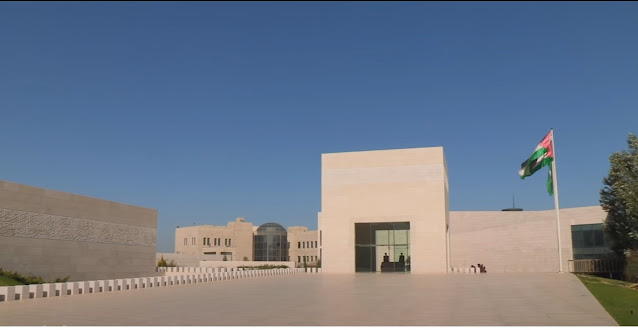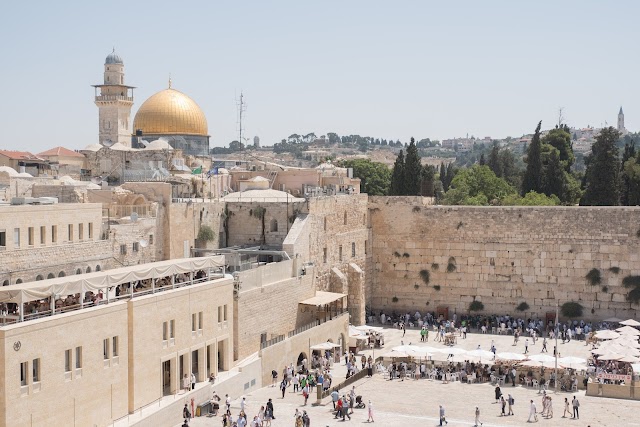Ramallah
Summary
Found a simple 10km
from Jerusalem, Ramallah was generally a Christian town, which today has a
Muslim larger part with areas of strength for a minority. The city was managed
by the British until 1948, then, at that point, by the Jordanians, lastly
caught by Israel in the Six Day War in 1967; the city stayed under Israeli rule
for the following forty years. Ramallah occupants were among the early joiners
of the principal Intifada in 1987, prompting an Israeli crackdown in the city.
Ordinary life continued as the harmony cycle pushed ahead, and somewhere in the
range of 1993 and 2000 Ramallah delighted in relative success and positive
thinking. Yet, joblessness rose and the Israeli Defense Forces (IDF) stayed in
charge of the regions and put limitations on the development of Palestinians.
One more Israeli crackdown in 2002 expanded Ramallah's seclusion. Despite these
difficulties, Ramallah holds something of its enterprising, moderate soul. In
2005, nearby decisions saw a lady casted a ballot chairman without precedent
for the city's set of experiences. By 2010, Ramallah had turned into the main
focus of monetary and political movement in the regions heavily influenced by
the Palestinian Authority (PA), and it is the accepted regulatory capital of
the province of Palestine. Notwithstanding, shortcoming inside the PA has lead
to the ascent of Hamas, which beat the Fatah Party in the 2006 decisions, and
bringing about a solidifying of positions on all sides. While Ramallah is
viewed as the most wealthy and liberal of every Palestinian city, and broadly
hailed to act as an illustration of Palestinian monetary achievement, it is a
significant beneficiary of worldwide guide, which some have guaranteed has
prompted a financial air pocket and debasement.
PROFILE
Ramallah is a
Palestinian city in the focal West Bank found 10 kilometers (6 miles) north of
Jerusalem. The Palestinian Authority central command is at present situated in
Ramallah for most global NGOs and consulates. As per a Palestinian Central
Bureau of Statistics (PCBS) enumeration in 2011, there were roughly 310,218
living in the city. Ramallah was generally a Christian town, yet today Muslims
structure most of the populace, with a solid Christian minority. Sources
fluctuate about the ongoing Christian populace in the city, running around 25%.
Ramallah was
proclaimed a city in 1908 and had a chosen district as well as organization
projects with the neighboring town of al-Bireh. The British Army involved
Ramallah in December 1917, and the city stayed under British rule until 1948.
With the production of Israel in 1948 and the resulting struggle, Palestinians
from the seaside urban communities escaped to the rocky regions. Because of the
populace increment, Ramallah developed from a modest community into a city.
By 1953, Ramallah's
populace had multiplied, however the economy and foundation were as yet not
prepared to deal with the convergence of unfortunate residents. Locals of
Ramallah left, essentially to the United States. Ramallah was generally quiet
during the long stretches of Jordanian rule somewhere in the range of 1948 and
1967, with occupants getting a charge out of opportunity of development between
the West Bank, Jordan, Lebanon, Syria, and somewhere else. Jordan had attached
the West Bank, applying its regulation to the domain; be that as it may,
numerous Palestinians were imprisoned for being individuals from what the
Jordanian government viewed as unlawful ideological groups, including the
Palestine Communist Party and other communist and favorable to autonomy
gatherings. Jordanian regulation additionally confined the innovativeness and
opportunity wanted by numerous Palestinians at that point.
During the Six-Day
War in 1967, Israel caught Ramallah, forcing a tactical conclusion and
directing a statistics half a month after the fact. Each individual enrolled in
the statistics was given an Israeli personality card which permitted the
conveyor to keep on living there. The people who were abroad during the
statistics lost their residency privileges. For occupants of Ramallah, the
circumstance had now turned around itself: without precedent for 19 years
inhabitants couldn't uninhibitedly visit or participate in business in Israel
and the Gaza Strip.
Dissimilar to
Jordan, Israel didn't endeavor to add-on the entirety of the West Bank or deal
citizenship to the occupants. Rather, Ramallah occupants were given grants to
work in Israel. The city stayed under Israeli military rule for north of forty
years. The Israeli Civil Administration (ICA) laid out in1981, was responsible
for regular citizen and everyday administrations like giving authorization to
travel, fabricate, commodity or import, and host family members from abroad.
The ICA reproduced Jordanian course books for conveyance in schools, yet didn't
refresh them. The ICA was responsible for charge assortment and land
confiscation, which once in a while included olive forests that Arab locals
professed to have tended for ages. As per Israeli common freedoms activists,
Jewish settlements in the Ramallah region, for example, Beit El and Psagot,
forestalled the extension of the city and cut it off from the encompassing
towns. As obstruction expanded, Ramallah occupants were imprisoned or ousted to
adjoining nations for enrollment in the Palestine Liberation Organization
(PLO). In December 1987, the famous uprising known as the Intifada ejected.
Ramallah inhabitants
were among the early joiners of the primary Intifada. The Intifada Unified
Leadership, an umbrella association of different Palestinian groups, disseminated
week after week releases in the city of Ramallah with a timetable of the
everyday fights, strikes and activity against Israeli watches in the city. At
the exhibits, tires were singed in the road and the groups tossed stones and
Molotov mixed drinks.
The Israeli Defense
Forces (IDF) answered with poisonous gas and elastic slugs. Schools in Ramallah
were effectively closed down, and opened steadily for a couple of hours daily.
House captures were completed, and curfews were forced that limited travel and
commodities in what Palestinians viewed as aggregate discipline. In light of
the conclusion of schools, occupants coordinated self-teaching meetings to
assist understudies with making up missed material; this became one of a
handful of the images of common rebellion. The Intifada authority coordinated
"tree plantings" and depended on the strategies utilized in pre-1948
Palestine, for example, requesting general strikes in which no business
organizations were permitted to open and no vehicles were permitted in the
city.
In 1991, the
Palestinian assignment to the Madrid International Peace Conference included
numerous notables from Ramallah. As the Intifada slowed down and the harmony
cycle pushed ahead, ordinary life in Ramallah continued. On September 13, 1993
the renowned White House handshake between Israeli Prime Minister Yitzhak Rabin
and Palestinian pioneer Yasser Arafat occurred, solidifying the Oslo Accords,
which made the Palestinian Authority (PA). In December 1995, with regards to
the Oslo Accords, the Israeli armed force deserted the focal point of Ramallah
and pulled out to the city edges.
The years somewhere
in the range of 1993 and 2000 (referred to locally as the "Oslo
Years") carried relative flourishing to Ramallah. Many ostracizes got back
to lay out organizations there and the environment was one of idealism. In
2000, joblessness started to rise and the economy of Ramallah declined. The
Israel Defense Force stayed in charge of the domains; the opportunity of
development delighted in by Ramallah occupants before the main Intifada was not
reestablished. Go to Jerusalem required unique licenses, and development of
Israeli settlements around Ramallah expanded emphatically. An organization of
sidestep streets for utilization of Israeli residents just was worked around
Ramallah, and land was seized for settlements. Numerous authority reports
recently took care of by the Israeli Civil Administration were currently dealt
with by the Palestinian Authority, yet required Israeli endorsement. A Palestinian
identification gave to Ramallah inhabitants was not legitimate except if the
chronic number was enrolled with the Israeli specialists, who controlled line
intersections. The disappointment of the Camp David highest point in July 2000
prompted the episode of the al-Aqsa Intifada (Second Intifada) in September
2000.
In 2002, Ramallah
was re-involved by Israel in an IDF activity codenamed Operation Defensive
Shield, which brought about curfews, power cuts, school terminations and
disturbances of business life. Numerous Ramallah foundations, including
government services, were vandalized, and gear was obliterated or taken. The
IDF took over nearby Ramallah TV channels, and social and monetary
circumstances decayed. Many exiles left, as did numerous different Palestinians
who griped that the day to day environments had become horrendous. The Israeli
West Bank division boundary/wall has promoted Ramallah's seclusion.









0 Comments
if you have any doubts, please let me know.